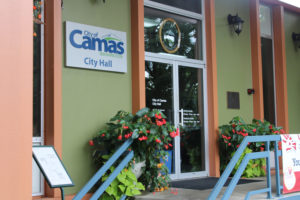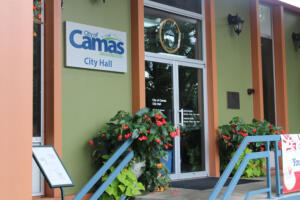Camas City Council members Monday night unanimously agreed to raise the amount of money the city can levy from property taxes by 1 percent, the maximum annual increase allowed by state law.
The 1-percent increase will bring an additional $124,554 to the city in 2020. Combined with nearly $439,000 in taxes from new construction, that means the city’s tax levy in 2020 will bring in $13,018,961 compared to $12,455,418 in 2019.
The average Camas homeowner, however, will only see a slight difference in their individual tax bills. In a Nov. 4 presentation to the city council, Camas Finance Director Cathy Huber Nickerson showed the impacts of the 1-percent increase on the owner of a $476,300 house — the median home price in Camas.
Although the average Camas homeowner will see a $27 decrease in city taxes in 2020, the 1-percent increase will cost the average homeowner in Camas between $12 (in 2021) and $14.40 (in 2025) more per year than if the council had voted to not increase the tax levy amount by the allowed 1 percent.
The Council opened the subject to a public hearing Monday night, but had no public comment and no discussion amongst the councilors before voting 7-0 to increase the amount of property tax levy money by 1 percent.




